By: The MobiHealthNews Team
By the end of CES15 MobiHealthNews has tracked more than 40 health device makers who either unveiled or launched products, announced updated pricing or new features for already known ones. If you missed our first roundup of health devices from CES15 -- be sure to check them out here. Read on for another 19 digital health device makers who made news at CES15 in Las Vegas this week.
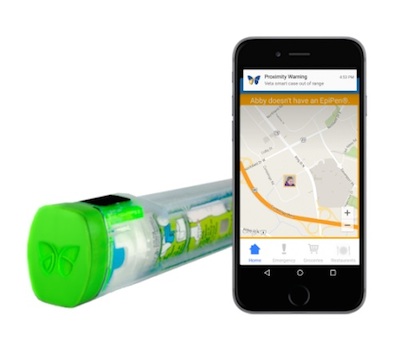
Aterica announced that their first product, a smartphone-connected case for an EpiPen, called Veta, is open for pre-orders. The case has a flashing light and audio alerts that can help the user locate the EpiPen if it's been misplaced. Veta also has a proximity alert that will tell users via their mobile device if they left the case behind. Users can customize the proximity alerts by providing flexibility if they are in low-risk locations, like their home. Temperature sensors in the case can alert the user if the EpiPen gets too hot or too cold and if the user has an allergic reaction and take the cap off the smart case, an alert will be sent to caregivers in the user's network.

Quitbit launched its smartphone-connected lighter for cigarette tracking and smoking cessation through a crowdfunding campaign on Kickstarter in May 2014, but at CES the company announced that the device would go on sale for $99 and that preoders would ship in March. The Quitbit lighter has its own built-in display that tells users how long it’s been since their last cigarette and how many they have left for the day (if they set a limit). Since many smokers share lighters with friends or light a friend’s cigarette for them, the device has a three minute window after a first light-up when it doesn’t count subsequent uses. That way if the wind blows out a cigarette shortly after lighting it, it’s not counting it twice either.
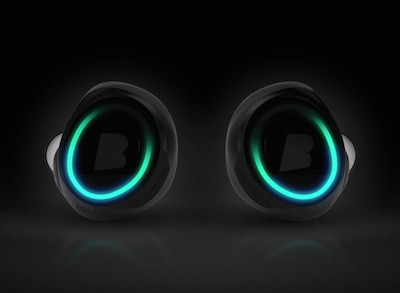
Bragi unveiled a demo of the company's fitness-sensing earbuds at CES. Dash plays music via Bluetooth and tracks pace, steps, cadence, distance, heart rate, oxygen saturation, and energy spent. The product, which completed a Kickstarter campaign in March 2014, was not yet complete when it was demoed at CES, but the company said they plan to ship Dash in the spring. The Dash is available for preorder for $299.
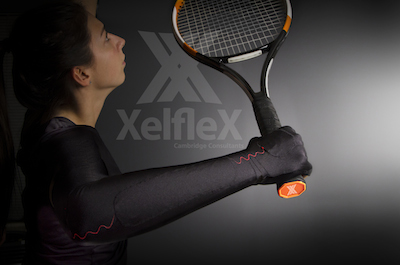
Cambridge Consultants unveiled its XelfleX smart fabric that measures body movement using fiber optic thread instead of embedding the clothing with sensors. This way, the clothing is "inherently smart", the company explains. The clothing could be used for fitness and sports coaching, for example "to help perfect a tennis serve, golf swing or ski technique, or as part of a physiotherapy to help patients recover after injury, surgery, or neurological problems".
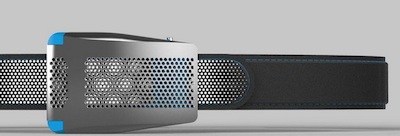
Emotia demoed its prototype for a smart belt, called Belty, according to Engadget. The belt will is motorized and will tighten or loosen itself so that the user stays comfortable while moving around. The belt also tracks steps and sends this data to a companion app via Bluetooth. The belt can also vibrate with a user has been sedentary for too long. Finally, it keeps tabs on changing waist measurements so that it can notify users if they are at risk for weight gain.
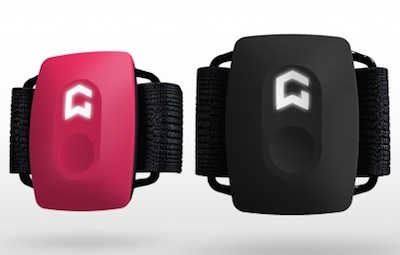
Gymwatch announced its fitness sensor, which was developed to help those that are already fitness-focused and want to improve their workouts. The device is strapped around the user's arm or leg muscles and measures the user's starting strength, maximum strength, explosive strength, speed strength, and full range of movement. This way, the company explains, Gymwatch can help users do movements correctly and with the optimum intensity.
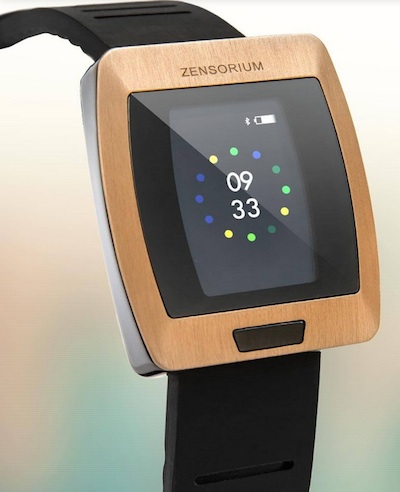
Zensorium announced at CES that the company's new product, a smartwatch that continuously tracks your mood, heart rate, and activity, would go on sale for preorder. The device costs $169.15 if preordered and will be shipped in April 2015. It will retail for $199. Being's most significant feature is its mood tracking. The device will map the user's mood into four different zones, excited, distress, normal, and calm using heart rate and changes in blood pressure. It will also differentiate good stress from bad stress.
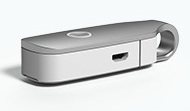
SCiO, a tiny spectrometer that says it will send information about food, nutrition, and medication to a user’s smartphone via Bluetooth Low Energy, announced that the estimated ship date for the device is July 2015. SCiO raised $2.2 million on Kickstarter, on top of $4 million to $5 million in funding from venture capitalists including Khosla Ventures. According to the company, device will be able to scan foods and return information about their nutritional content, assess the ripeness of fruit through its skin, assess the health of plants, analyze soil, and authenticate medications. Specifically, for scanned foods, it will return results for calories, fat, protein, and carbs.
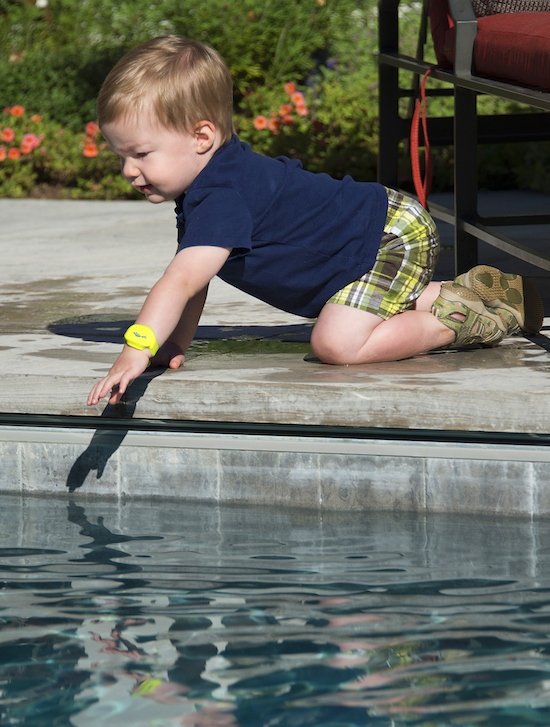
iSwimband had developed a sensor that will alert its companion app if someone wearing the sensor has been in the water for longer than preset limits or if a non-swimmer falls into the water. The device costs $79 and according to PC Mag, comes with clip-on attachments and bands so it can be worn on the wrist or clothing.
Linx IAS from BlackBox Biometrics
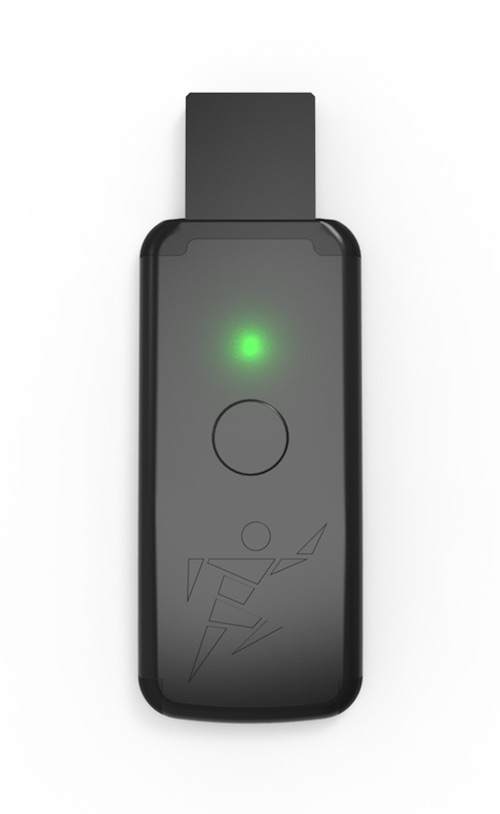
BlackBox Biometrics showed off its concussion sensor, a product for athletes that follows up on their Blast Gauge system used by the military for measuring the impact of explosives on soldiers. The Linx IAS has a similar form factor to MC10 and Reebok's Checklight -- a small sensor fitted into the back of a mesh helmet inset or headband that measures the impact of a potential concussion. After a head injury, athletes can check a green, yellow, or red light to see whether it needs immediate attention, and parents and coaches can have that same assessment sent directly to their smartphone.

MobiHealthNews has written before about Pacif-i, a dishwasher-proof smart pacifier, which has a built-in temperature sensor that will track their babies’ temperature over time. It transmits information to the parents’ iOS and Android devices through Bluetooth Smart and a companion app. At CES BlueMaestro showed off the device and announced new details about pricing and availability: the device will be available starting in February for $39.
Sensoria Smart Socks for physical therapy
 Sensoria's original smart sock product.
Sensoria's original smart sock product.
Sensoria is working with Respondwell to create a new version of its fitness tracking socks for rehabilitation patient monitoring. The technology will allow patients to do exercises and receive feedback immediately from a therapist connected via a tablet app. In the future, the two companies might also work together for stroke rehabilitation, disease management, sports rehabilitation and to improve general wellness.
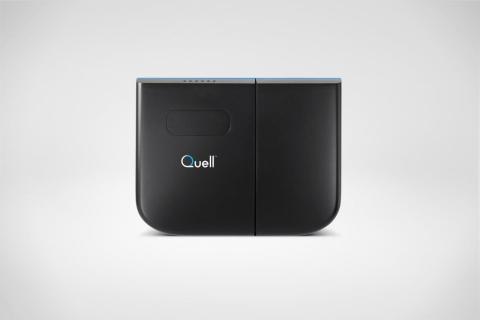
NeuroMetrix's $250 Quell device is a wearable not just for monitoring health, but for pain relief. The device, which launches later this spring, will use nerve stimulation to treat chronic pain by sending signals to the brain that cause it to release natural opioids. Quell is also Bluetooth-connected, so patients can track and manage their therapy via an app. It has already received FDA clearance.
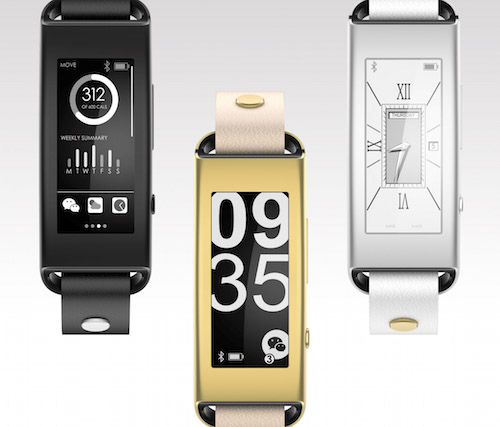
Smartphone maker Lenovo showed off its $89 smart watch and fitness tracker, the Lenovo VIBE Band. The device sports a curved metal and glass screen and measures steps, calories, travel distance and sleep quality. It's also waterproof and its battery lasts seven days. Unfortunately, the device isn't launching right away in the United States, according to Engadget.
Swarovski Collection from Misfit

Misfit, maker of the Shine and Flash activity trackers, has partnered with Swarovski to create two new versions of the Shine that feature a crystal face and look even more like jewelry than the company’s original polished aluminum device. One of the devices, the violet Swarovski Shine, uses solar charging to stay powered up — sunlight, LEDs, or halogen lighting all keep the device up and running. Like all Shine devices the two in the Swarovski Shine collection feature a watch battery that have a six month lifespan, according to the company.
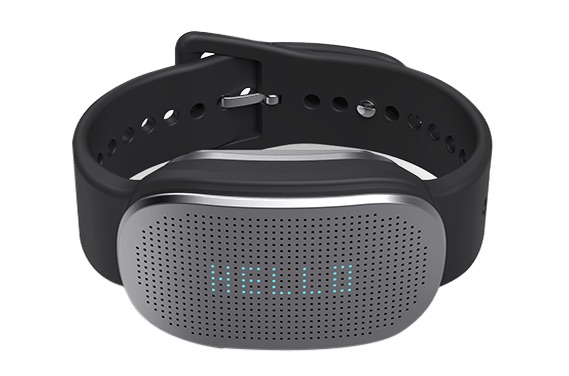
HealBe's controversial GoBe calorie tracking bracelet resurfaced at CES, with some indications that the technology might be for real after all. For one, HealBe allowed the BBC to test the device at CES, and although the test was conducted on HealBe cofounder George Mikaberydze, not on a journalist, they did test out the device with foods selected by the BBC. The device proved reasonably accurate in the test. Second, the company announced that the devices would be available at the end of the month for $299 a piece.
ADAM Sensor from Health Care Originals
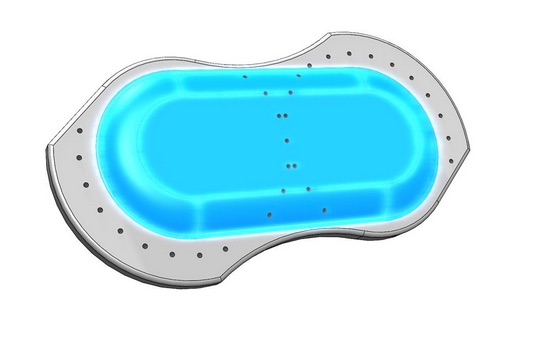
Apple Insider reports that a new iPhone-connected asthma sensor launched at CES as well. Called the ADAM sensor, the device is a peel-and-stick sensor that can count coughs, and measure respiration, wheeze, and heart rate. It will also feature inhaler detection, alerts and alert forwarding, symptom tracking and trending, and treatment plans when it launches in the second quarter.
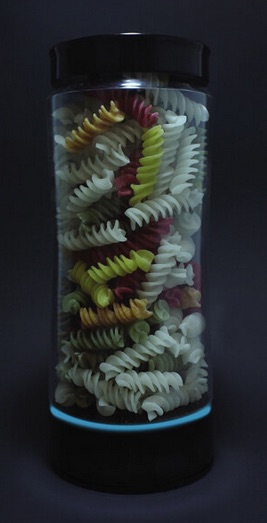
Neo is a smart jar that can communicate information about its context to a smartphone via Bluetooth. It allows users to track the supply of different ingredients in the kitchen, but also calculates nutritional values based on portions and barcodes scanned when the jar is initially filled. SKE Labs says on its website the jar will even be able to sync with fitness devices.

It wouldn't be CES without a brain-wave tracking meditation wearable. MeloMind, expected by the end of the year, has four prongs that read electroencephalograph readings, and a connected app uses them to determine what meditative music to play. The wearable will be available for $299 according to CNET.














